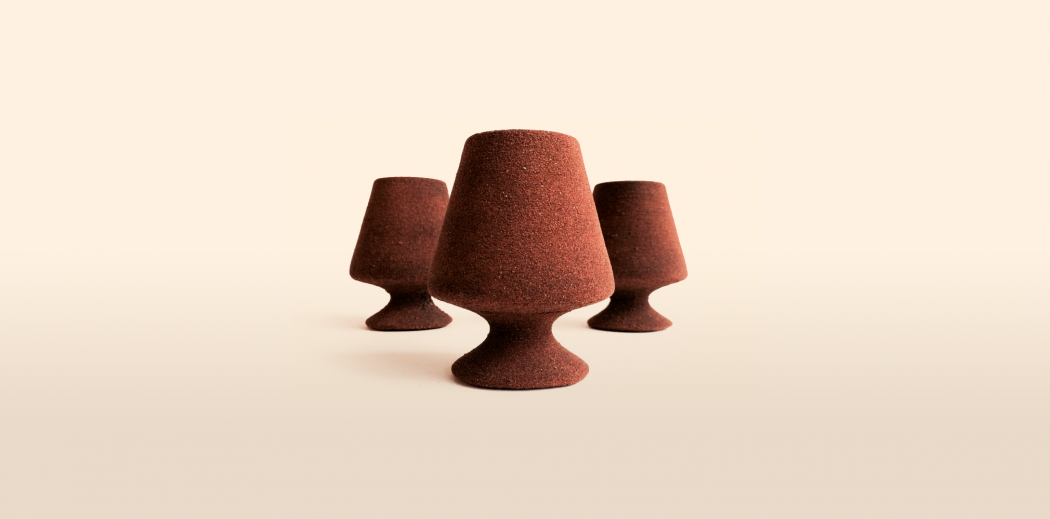We’ve always been into getting our wine fix sustainably, or at least choosing wines that are charity-minded or environmentally-friendly. But now, scientists are taking it up a level with a different approach to wine sustainability, and it comes in the form of recycled vino glasses.
Ronald Rael, an associate professor of architecture at the University of California, Berkeley, has taken a wine-fueled approach to 3-D printing. Maybe you’ve heard of 3-D printing, but if you need a refresher, it’s a manufacturing technique that uses layers of material formed under computer control to create an object – and the objects can be almost any shape or size. Today, 3-D printing is often used for technological advancement or the all-around scientific good, but it’s also been used to create missing pieces of ancient artifacts; design gears for machines; and manufacture custom Nike athletic shoes… We’ll let you know when you can start printing cheese to pair with your wine, but we’re not quite there yet.
Rael got our attention by bringing wine into the picture. He’s created Chardonnay goblets from grape skins, which were leftover from the winemaking process. Currently, the design is more conceptual than practical – the glasses are coated with a sealant designed for dry food, and are yet to be used for sipping Chard. They are pretty interesting to look at, though we learned that Chardonnay with high acidity is actually best sipped from a glass this shape – the oversized bowl allows enough air int0 the glass to “coax out its nuanced flavors.”
Rael created these goblets as one demonstration of how wine industry waste (in this case, discarded grapes) can be repurposed into useful items. There is a surprising amount of waste generated by the winemaking process – for perspective, California wineries alone generate over 100,000 tons of solid remains from crushed grapes.
While you’re waiting for a functional version of these recycled glasses to hit the market, there are a few other ways you can get your wine fix while inflicting minimal damage upon the environment. Look for biodynamic wine, fair trade certified varieties, or carbon-neutral wine if you’re feeling particularly earthy. And make sure you recycle any and all containers that your wine comes in, whether it’s a cardboard box, an aluminum can, or an old-fashioned glass bottle.
Photograph courtesy of Ronald Rael via Inside Science.








